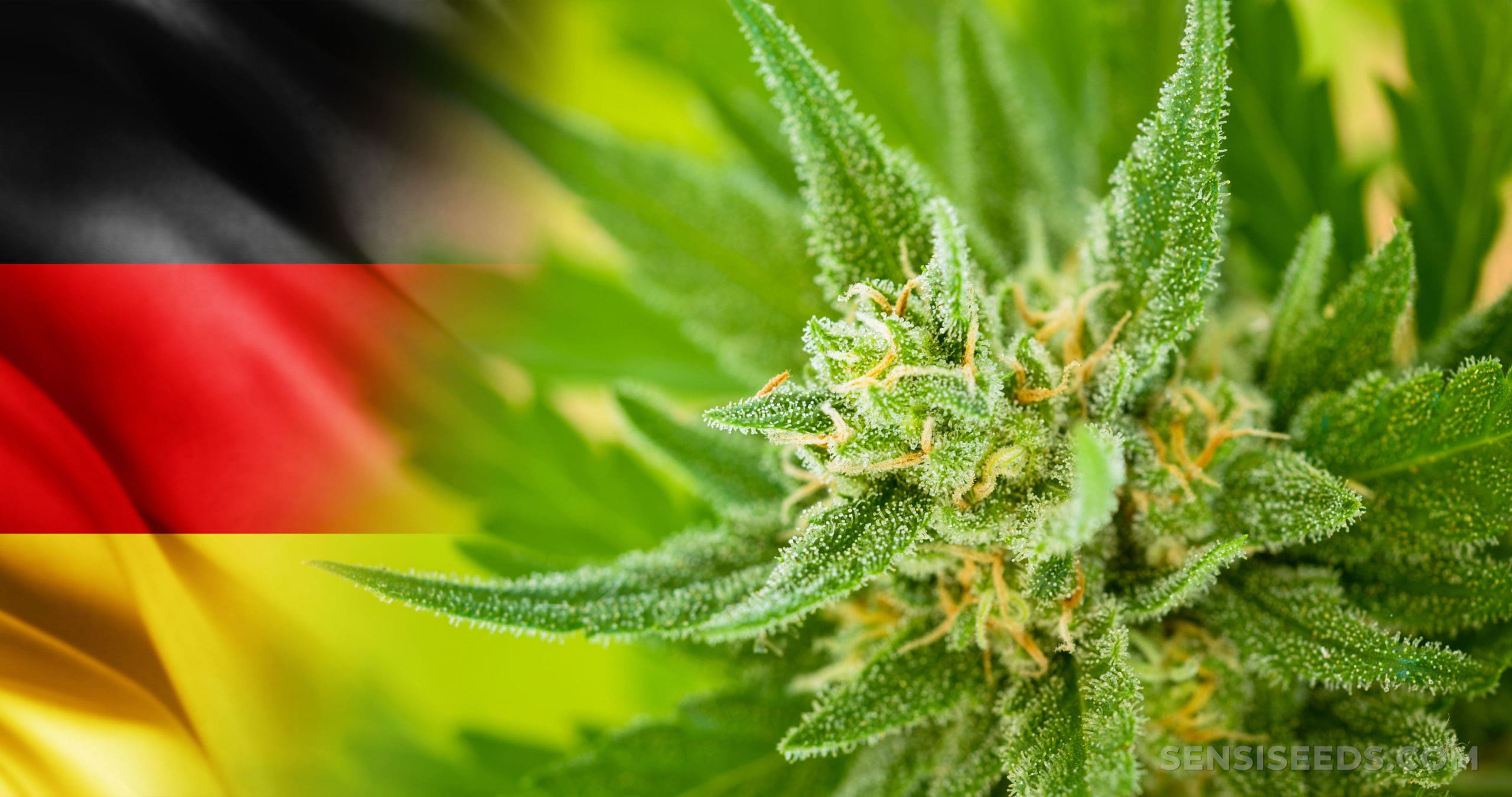One of the most important points to note about Germany cannabis laws is that they have not fully decriminalized or legalized the drug in the same way that some other countries, such as Canada or Uruguay, have done. Instead, Germany has taken a more cautious approach, allowing for certain exceptions and regulations.
Under the new legislation, adults aged 18 and above are now allowed to possess up to 15 grams of cannabis for personal use. This means that individuals can legally carry a small amount of marijuana without fear of prosecution or punishment. However, it is important to note that the sale and distribution of cannabis is still illegal, except for medical purposes.
In addition to the possession limit, Germany cannabis laws has also established a system for the cultivation of cannabis for personal use. Individuals are now allowed to grow up to four cannabis plants at home, as long as they are for personal consumption only. This provision aims to give individuals more control over their cannabis use and reduce the demand for illegal drug trade.
More
However, it is crucial to understand that the new law does not mean that cannabis can be consumed freely in public spaces. Public consumption of marijuana is still prohibited, and individuals caught smoking or using cannabis in public can face fines or other penalties. The law only allows for private consumption in the privacy of one’s own home or in designated cannabis social clubs.
Another significant aspect of Germany cannabis laws is the provision for medical marijuana. While medical cannabis has been legal in Germany since 2017, the new legislation further expands access to medical marijuana for patients who can benefit from its therapeutic properties. This includes individuals suffering from chronic pain, multiple sclerosis, epilepsy, and other qualifying conditions.
Overall, the legalization of cannabis in Germany represents a major step forward in drug policy reform. The new laws aim to strike a balance between personal freedom and public safety, allowing individuals to possess and cultivate small amounts of marijuana for personal use while maintaining strict regulations on sale and public consumption. As the country continues to navigate the complexities of cannabis legalization, it will be interesting to see how these laws evolve and impact both individuals and society as a whole.
1. Medicinal Use of Cannabis (Germany Cannabis Laws)
One of the major aspects of Germany’s cannabis legalization is the recognition of its medicinal benefits. Since 2017, medical cannabis has been legal in the country, allowing patients with certain conditions to access cannabis products for therapeutic purposes. This move has been welcomed by many patients who have found relief from symptoms such as chronic pain, multiple sclerosis, and epilepsy.
Under the new legislation, doctors in Germany can prescribe cannabis-based medicines to patients who meet the criteria. However, it is important to note that not all cannabis products are covered by health insurance. Patients may need to cover the costs themselves, which can be a significant financial burden for some.
Despite the potential financial challenges, the availability of medical cannabis in Germany has opened up new treatment options for patients. The medicinal use of cannabis has gained recognition due to its ability to alleviate pain, reduce inflammation, and improve overall well-being. For individuals suffering from chronic pain, cannabis-based medicines can provide much-needed relief when traditional pain management methods have failed. Moreover, cannabis has shown promise in treating neurological disorders such as multiple sclerosis and epilepsy, where conventional treatments may have limited efficacy.
More
Furthermore, the legalization of medical cannabis has led to increased research and development in the field. Scientists and researchers are now able to conduct more comprehensive studies on the therapeutic benefits of cannabis, exploring its potential in treating a wide range of medical conditions. This research not only benefits patients in Germany but also contributes to the global understanding of cannabis as a legitimate medical treatment.
However, the use of medical cannabis is not without controversy. Some argue that there is still a lack of sufficient scientific evidence to support its efficacy in certain medical conditions. Additionally, concerns have been raised about the potential for abuse and the long-term effects of cannabis use. As a result, strict regulations and guidelines are in place to ensure that medical cannabis is used responsibly and only when necessary.
Overall, the legalization of medical cannabis in Germany has provided a ray of hope for patients suffering from debilitating conditions. It has given them access to alternative treatment options and the potential for a better quality of life. While there are challenges and ongoing debates surrounding its use, the recognition of cannabis as a legitimate medicine marks a significant step forward in the field of healthcare.
2. Decriminalization of Small Amounts (Germany Cannabis Laws)
While Germany has not fully legalized recreational cannabis use, the possession of small amounts for personal use has been decriminalized. This means that individuals caught with small quantities of cannabis will not face criminal charges or imprisonment. Instead, they may receive a fine or be required to attend a drug awareness program.
It’s important to note that decriminalization does not mean legalization. The sale and distribution of cannabis are still illegal, and individuals caught engaging in such activities can face legal consequences. The decriminalization of small amounts is aimed at reducing the burden on the criminal justice system and allowing law enforcement to focus on more serious offenses.
This approach to cannabis policy reflects a growing trend in many countries around the world. As public opinion shifts towards a more progressive stance on drug use, governments are reevaluating their approach to cannabis regulation. Decriminalization is often seen as a middle ground between full legalization and strict prohibition.
More
Advocates argue that decriminalization can help reduce the harms associated with drug use, such as overcrowded prisons and the stigmatization of drug users. By treating drug use as a public health issue rather than a criminal one, individuals are more likely to seek help and support, leading to better outcomes for both individuals and society as a whole.
However, critics of decriminalization worry that it may send a mixed message regarding drug use. They argue that by removing criminal penalties for possession, it may inadvertently normalize drug use and increase overall consumption. They also express concerns about potential negative health effects and the potential for cannabis to act as a gateway drug.
Despite these concerns, the decriminalization of small amounts of cannabis in Germany has been largely successful. It has helped alleviate the strain on the criminal justice system and has allowed law enforcement to focus their resources on more pressing issues. Additionally, it has provided individuals caught with small amounts of cannabis an opportunity to avoid the lifelong consequences associated with a criminal record.
More
While decriminalization is a step in the right direction, there is still ongoing debate about the future of cannabis policy in Germany. Some argue for full legalization, pointing to the economic benefits and potential for regulation and taxation. Others believe that maintaining the current decriminalization approach strikes a balance between personal freedom and public safety.
As the conversation around cannabis continues to evolve, it is clear that there is no one-size-fits-all solution. Each country must carefully consider its own cultural, social, and economic factors when determining the best approach to cannabis regulation. Germany’s decriminalization of small amounts is just one example of the diverse range of policies being implemented worldwide.
3. Cannabis Social Clubs (Germany Cannabis Laws)
Germany’s new legislation also paves the way for the establishment of cannabis social clubs. These clubs will allow individuals to cultivate and consume cannabis in a communal setting, similar to the coffee shops in the Netherlands. The clubs will be regulated and subject to certain restrictions, ensuring that they operate within the boundaries of the law.
While the specifics of how these clubs will operate are still being worked out, they are seen as a step towards a more regulated and controlled cannabis market. This approach aims to reduce the black market and provide a safer environment for individuals who choose to consume cannabis.
The concept of cannabis social clubs has gained popularity in recent years as a way to address the demand for cannabis in a controlled and organized manner. These clubs, which have been successfully implemented in countries like Spain and Uruguay, provide a legal framework for the cultivation, distribution, and consumption of cannabis.
More
One of the main advantages of cannabis social clubs is that they promote responsible use of the drug. By creating a community-based model, these clubs can educate their members about the potential risks and benefits of cannabis, as well as provide guidelines for safe consumption. This approach not only helps to minimize the negative consequences associated with unregulated use but also fosters a sense of community and support among cannabis users.
Furthermore, cannabis social clubs can have a positive impact on the economy. By regulating the production and distribution of cannabis, these clubs can generate tax revenue and create job opportunities. This can help stimulate local economies and reduce the financial burden on law enforcement agencies that are currently focused on combating the illegal drug trade.
However, the establishment of cannabis social clubs also raises some concerns. Critics argue that these clubs could potentially increase the accessibility and availability of cannabis, leading to higher rates of use and potential abuse. They also raise questions about the potential for these clubs to become a cover for illegal activities or to attract criminal elements.
More
To address these concerns, it is crucial for the German government to implement strict regulations and oversight mechanisms for cannabis social clubs. This includes thorough background checks for club members, regular inspections of club premises, and strict enforcement of age restrictions. Additionally, education and prevention programs should be in place to ensure that individuals are well-informed about the risks and responsible use of cannabis.
In conclusion, the introduction of cannabis social clubs in Germany represents a significant step towards a more regulated and controlled cannabis market. While there are potential risks and concerns associated with these clubs, proper regulation and oversight can help mitigate these issues. By providing a legal framework for the cultivation and consumption of cannabis, these clubs can contribute to a safer and more informed cannabis culture in Germany.






